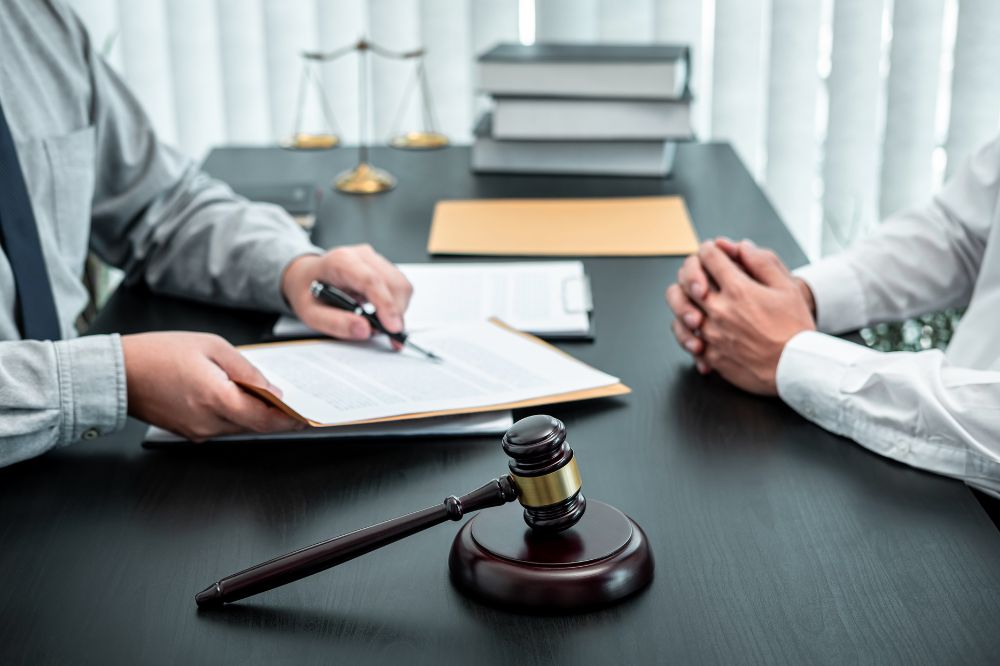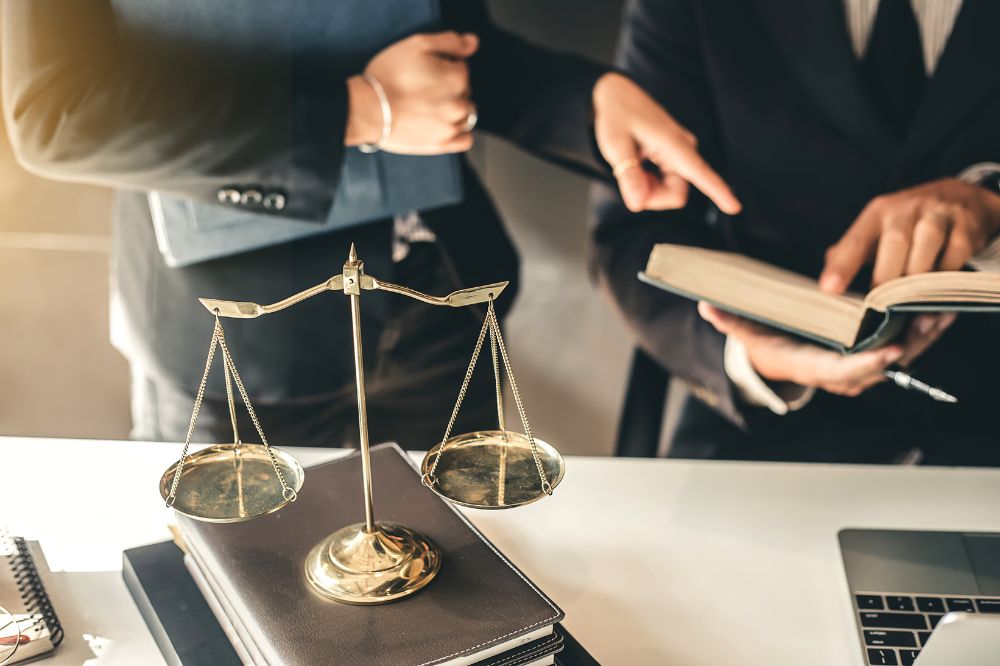Did you know that a significant number of limited liability companies face insolvency, business bankruptcy, and personal bankruptcy each year? Understanding the intricacies of insolvency, including personal bankruptcy for such entities, is crucial for both business owners, stakeholders, and creditors. When a limited liability company encounters financial distress, navigating the complexities of insolvency proceedings becomes paramount to protect assets and mitigate losses, especially when dealing with business bankruptcy, corporate veil, litigation, and business debt. Whether you are a business owner seeking insights or a stakeholder looking to understand the process better, this guide aims to provide valuable information to help you navigate through challenging financial times.
Key Takeaways
- Understanding Insolvency: Recognize the signs of insolvency in a limited liability company to take timely action.
- Chapter 7 Bankruptcy Basics: Understand the process and implications of Chapter 7 bankruptcy for LLCs facing financial distress.
- Personal Liabilities in Bankruptcy: Be aware of potential personal liabilities that owners of LLCs may face during bankruptcy proceedings.
- Navigating Chapter 7 for LLCs: Seek expert guidance to navigate the complexities of Chapter 7 bankruptcy specifically tailored to limited liability companies.
- Partnerships and Bankruptcy: Understand how partnerships can be affected by the bankruptcy of an LLC and plan accordingly.
- Alternative Solutions: Explore alternative solutions to bankruptcy, such as debt restructuring or negotiation, before opting for Chapter 7.
- The Role of a Bankruptcy Attorney: Engage a knowledgeable bankruptcy attorney to guide you through the legal processes and protect your interests.
- Preparing for Filing: Organize financial documents and prepare thoroughly before filing for bankruptcy to ensure a smoother process.
- Life After Bankruptcy: Plan for the future post-bankruptcy, focusing on rebuilding credit and implementing sound financial practices.
Understanding Insolvency
Definition
Insolvency for limited liability companies refers to the financial state where a company cannot pay its debts. This situation triggers legal obligations, fiduciary duties, and responsibilities for the company. It is crucial to understand that insolvency is different from bankruptcy for LLCs.
Signs of Distress
Common signs of financial distress in an LLC include repeated delays in vendor payments and inadequate cash flow. Recognizing insolvency involves observing persistent losses and inability to meet financial obligations. Early detection of these signals is vital to prevent further escalation.
Impact on LLCs
Insolvency has significant consequences on an LLC’s operations, such as potential closure or restructuring. The reputation and credibility of the company may suffer, leading to loss of customer trust. Stakeholders, including employees and investors, face uncertainties regarding their investments in an insolvent LLC.
Chapter 7 Bankruptcy Basics
Procedure Overview
The insolvency process for LLCs involves several key steps. Initially, the company files for bankruptcy protection, triggering an automatic stay on creditor actions. The court appoints a trustee to oversee the case and liquidate assets to repay creditors. Eventually, the case concludes with the discharge of remaining debts.
In an insolvency case, the initial filing marks the commencement of proceedings. Subsequently, creditors submit claims, and the trustee evaluates these claims for validity. Throughout the process, the court supervises to ensure compliance with bankruptcy laws. Finally, once assets are liquidated and debts repaid as much as possible, the case reaches resolution.
The court plays a pivotal role in insolvency cases by overseeing proceedings and ensuring adherence to legal requirements. Appointed trustees act as impartial parties responsible for managing asset liquidation and distributing proceeds fairly among creditors. Their role is crucial in maintaining transparency and fairness throughout the insolvency process.
Eligibility Criteria
For an LLC to qualify for insolvency relief, it must meet specific requirements such as having overwhelming debt that cannot be repaid through regular operations. Factors determining eligibility include demonstrating financial distress and inability to meet financial obligations. Exceptions may exist based on individual circumstances or state-specific regulations.
Eligibility for insolvency proceedings hinges on factors like the company’s financial standing, debt level, and ability to continue operations profitably post-bankruptcy. In some cases, certain types of debts or entities may not be eligible for relief under Chapter 7 bankruptcy laws. Understanding these criteria is essential for determining whether an LLC can seek insolvency protection.
Certain limitations or exceptions may impact an LLC’s eligibility for insolvency relief. These could include recent transfer of assets, fraudulent activities, or failure to comply with court orders during previous bankruptcy proceedings. It’s crucial to assess these factors carefully before initiating insolvency filings.
Filing Costs
Filing for insolvency incurs various costs such as court fees, attorney charges, and administrative expenses related to asset evaluation. The complexity of a case can influence filing costs, with more intricate scenarios requiring additional resources and expertise which might escalate expenses.
Managing filing costs effectively involves exploring options like fee waivers for low-income filers or negotiating payment plans with attorneys. Seeking pro bono legal services or utilizing online resources can help reduce overall filing expenses while navigating the insolvency process efficiently.
Personal Liabilities in Bankruptcy
Personal Guarantees
Personal guarantees play a crucial role in LLC insolvency, potentially exposing individual members to significant financial risks. In the event of insolvency, creditors may pursue personal assets of LLC members if they have provided personal guarantees for business debts. This means that personal assets such as homes, vehicles, or savings could be at risk.
To navigate personal guarantees during insolvency, LLC members can consider negotiating with creditors to modify or release the guarantees. Another strategy is to seek legal advice to understand the extent of personal liability and explore options such as restructuring debts or seeking bankruptcy protection to shield personal assets from seizure.
Credit Card Debt
In insolvency proceedings for LLCs, credit card debt is typically classified as unsecured debt. During bankruptcy, unsecured debts like credit card balances are prioritized differently depending on the type of bankruptcy filed. LLCs facing insolvency must address credit card debt along with other obligations to determine repayment plans or potential discharge through bankruptcy.
LLCs can manage credit card debt during insolvency by working with creditors to negotiate repayment terms, exploring debt consolidation options, or seeking professional financial guidance to develop a feasible repayment strategy. Understanding the treatment of credit card debt in insolvency is essential for making informed decisions regarding debt management.

Legal Liabilities
Owners of an LLC facing insolvency bear legal responsibilities and liabilities concerning the company’s debts and obligations. In cases of insolvency, owners may face personal liability if they have engaged in activities that breach fiduciary duties or fail to comply with legal requirements. The legal liabilities of LLC owners can vary based on factors such as the type of insolvency proceeding initiated.
Understanding their legal obligations is crucial for LLC owners to mitigate potential risks and liabilities during insolvency. Seeking legal counsel to navigate complex legal issues and ensure compliance with relevant laws and regulations can help protect owners from adverse consequences arising from insolvency-related legal challenges.
Financial Commingling
Financial commingling refers to mixing personal and business finances, which can complicate matters for an insolvent LLC during bankruptcy proceedings. When funds are commingled, distinguishing between personal and business assets becomes challenging, potentially leading to disputes over asset ownership and distribution among creditors.
To avoid complications related to financial commingling during insolvency, LLCs should establish separate bank accounts for personal and business finances. Maintaining clear records of financial transactions and avoiding intermingling of funds can help demonstrate transparency and prevent misunderstandings regarding asset ownership in the event of insolvency.
Fraud Allegations
Fraud allegations against an insolvent LLC can significantly impact the bankruptcy process by prolonging proceedings and complicating debt resolution efforts. Accusations of fraud may arise if there are suspicions of wrongful actions such as concealing assets, providing false information, or engaging in fraudulent transactions before or during insolvency.
Addressing fraud allegations requires thorough documentation and cooperation with legal professionals to defend against unfounded claims effectively. Proactively addressing any concerns related to fraudulent activities by providing evidence of transparent financial practices can help protect the reputation and integrity of the insolvent LLC during bankruptcy proceedings.

Navigating Chapter 7 for LLCs
Asset Liquidation
Asset liquidation in insolvency cases involving LLCs involves evaluating and selling assets to repay creditors. The process typically starts with assessing the value of assets to determine their worth. Once valued, assets are sold off to generate funds for creditor repayment. This liquidation process has significant implications for the future of the LLC, as it may result in fundamental changes to its structure and operations.
Debt Discharge
Debt discharge in LLC insolvency refers to the elimination of certain debts through bankruptcy proceedings. While some debts may be discharged, others may remain even after insolvency. Commonly discharged debts include credit card balances, medical bills, and personal loans. On the other hand, debts like tax obligations and student loans typically survive bankruptcy and must still be repaid by the LLC.
Operational Consequences
Insolvency brings about various operational challenges for an LLC, impacting its day-to-day functions. Cash flow constraints may arise, leading to difficulties in meeting financial obligations such as paying suppliers or employees. Moreover, insolvency can tarnish the reputation of the LLC, making it harder to attract new customers or retain existing ones. To navigate these challenges, strategies such as cost-cutting measures and renegotiating contracts can help maintain stability during turbulent times.
Partnerships and Bankruptcy
Differences from LLCs
LLCs differ from other business entities like corporations in bankruptcy proceedings. The insolvency process for LLCs involves unique considerations such as the treatment of assets and liabilities. In contrast to corporations, LLC members have more flexibility in managing their debts during bankruptcy.
When it comes to business bankruptcy, LLCs follow a distinct set of procedures compared to sole proprietorships or partnerships. The structure of an LLC allows for a more streamlined liquidation process, offering greater protection to members’ personal assets. During bankruptcy proceedings, LLC owners can often retain control over the company’s operations.
The bankruptcy proceedings for LLCs are influenced by the entity’s structure, which typically shields members from personal liability. Unlike partnerships where partners may be personally liable for debts, bankruptcy proceedings for LLCs primarily target the company’s assets rather than individual owners’ personal finances.
Personal Liability
LLC owners enjoy limited personal liability in cases of insolvency, safeguarding their personal assets from being used to settle business debts. However, in certain circumstances, such as fraudulent activities or commingling of funds, courts may pierce the corporate veil and hold owners personally liable.
In instances of bankruptcy proceedings, protecting personal assets requires careful financial management and adherence to legal guidelines. By maintaining clear separation between business and personal finances, LLC owners can mitigate the risk of personal liability during insolvency. Seeking professional advice and implementing sound financial practices can further shield personal assets from being affected by the company’s financial troubles.
Alternative Solutions
Out-of-Court Negotiations
Out-of-court negotiations offer flexibility and confidentiality for LLCs dealing with insolvency issues. These negotiations involve direct discussions between the company and its creditors. The main benefit is the ability to avoid the formalities and costs associated with court proceedings.
However, out-of-court negotiations may lack legal protection compared to formal bankruptcy processes. Creditors might not be legally bound to adhere to any agreements reached outside of court. To ensure successful settlements, it’s crucial for LLCs to maintain open communication, transparency, and honesty throughout the negotiation process.
- Pros:
- Flexibility in reaching agreements
- Confidentiality in resolving financial matters
- Cons:
- Lack of legal protection
- Creditor non-compliance risk
Different Bankruptcy Types
LLCs have various bankruptcy options such as Chapter 7, Chapter 11, and Chapter 13. Each type differs in terms of eligibility criteria, debt repayment plans, and implications on the company’s operations. For example, Chapter 7 involves liquidation of assets to repay debts while Chapter 11 focuses on reorganization.
Choosing the right bankruptcy type depends on factors like the company’s financial situation, long-term goals, and desire to continue operations. Chapter 7 may be suitable for companies looking to dissolve completely, while Chapter 11 could be ideal for those aiming to restructure debts and continue operating.
- Bankruptcy Types:
- Chapter 7: Liquidation of assets
- Chapter 11: Reorganization for ongoing operations
- Chapter 13: Debt repayment plan for individuals
- Factors Influencing Choice:
- Financial stability
- Long-term business objectives
- Operational continuity goals
The Role of a Bankruptcy Attorney
Legal Advice
Seeking legal advice is crucial for LLCs facing insolvency to navigate the complexities of bankruptcy court. Legal professionals offer guidance on the best course of action and ensure compliance with relevant laws. When selecting an attorney, prioritize experience in insolvency law for optimal support.
Case Preparation
Preparing an insolvency case as an LLC involves several key steps to ensure a smooth process in bankruptcy court. Gathering documentation such as financial records, debts, and assets is essential for a successful filing. Organizing this information meticulously is vital to present a compelling case for insolvency.
Representation
Having legal representation during insolvency proceedings is paramount for LLCs to protect their interests in bankruptcy court. Attorneys or insolvency practitioners play a crucial role in advocating for the LLC’s rights and negotiating with creditors. Professional representation offers numerous benefits, including expert guidance and effective communication throughout the process.
Preparing for Filing
Documentation
To initiate insolvency filings, LLCs must gather essential documents such as financial statements and tax records. The accuracy and completeness of these documents are crucial for a successful insolvency case. Incomplete or inaccurate documentation can lead to delays in the process and potential legal complications. A checklist of required documents includes balance sheets, income statements, tax returns, and a list of creditors with amounts owed.
Financial Review
During insolvency proceedings, a thorough financial review is conducted to assess the company’s financial health. Financial experts analyze the LLC’s financial statements and records to determine its solvency status. They look for signs of insolvency such as inability to pay debts as they come due or having liabilities exceeding assets. This review plays a vital role in determining the best course of action for the insolvent LLC.
Credit Counseling
Credit counseling is invaluable for LLCs facing insolvency as it provides guidance on managing debts and improving financial literacy. By enrolling in credit counseling services, companies can gain insights into debt restructuring options and develop strategies to regain financial stability. Reputable credit counseling agencies offer resources such as debt management plans and budgeting tools tailored to the specific needs of insolvent LLCs.
Life After Bankruptcy
Credit Rebuilding
After insolvency, rebuilding credit becomes crucial for an LLC’s financial recovery. Implementing strategies like timely payments is essential. Establishing good credit practices post-insolvency helps in gradually improving credit scores. Consistent efforts towards financial health are key.
Business Restarting
Restarting a business post-insolvency involves several critical steps for an LLC. Considerations for rebranding, restructuring, or relaunching the business are vital. Rebuilding trust with stakeholders and customers is essential for sustainable growth.
Long-term Impacts
Insolvency leaves lasting effects on an LLC’s reputation and operations. It significantly influences the future trajectory of the business. Navigating these long-term impacts requires strategic planning and a focus on rebuilding the business.
Closing Thoughts
Now that you’ve gained insights into insolvency for limited liability companies, navigating Chapter 7 bankruptcy, and understanding personal liabilities, you’re better equipped to make informed decisions. Remember, seeking the guidance of a bankruptcy attorney can provide invaluable support in this complex process. As you prepare for filing and consider life after bankruptcy, explore alternative solutions and partnerships to secure a stable financial future.
Your journey through the intricacies of insolvency has equipped you with the knowledge needed to make sound financial choices. Remember, while the road may seem daunting, expert advice and proactive steps can pave the way for a fresh start. Stay informed, seek assistance when needed, and approach the challenges ahead with confidence.
Frequently Asked Questions
What is insolvency, and how does it affect limited liability companies?
Insolvency refers to the financial state where a company can’t pay its debts. For limited liability companies (LLCs), insolvency can lead to potential bankruptcy or restructuring of debts.
Can limited liability company owners be held personally liable in bankruptcy?
In most cases, LLC owners are protected from personal liability for business debts. However, if they provided personal guarantees for loans or engaged in fraudulent activities, they may be held personally liable in bankruptcy.
How can an LLC navigate Chapter 7 bankruptcy effectively?
Navigating Chapter 7 bankruptcy for an LLC involves understanding the process, gathering necessary financial documents, working with a bankruptcy attorney specialized in business bankruptcies, and complying with legal requirements to achieve a smooth resolution.
What are some alternative solutions for LLCs facing insolvency?
Alternative solutions for insolvent LLCs include debt restructuring, negotiating with creditors, seeking investment or financing opportunities, implementing cost-cutting measures, exploring mergers or acquisitions, or considering other forms of business reorganization.
Why is it crucial for an LLC to involve a bankruptcy attorney in the insolvency process?
A bankruptcy attorney specializing in business bankruptcies can provide expert guidance on navigating complex legal procedures, protecting the rights of the company and its owners, negotiating with creditors, and ensuring compliance with bankruptcy laws to achieve the best possible outcome.




